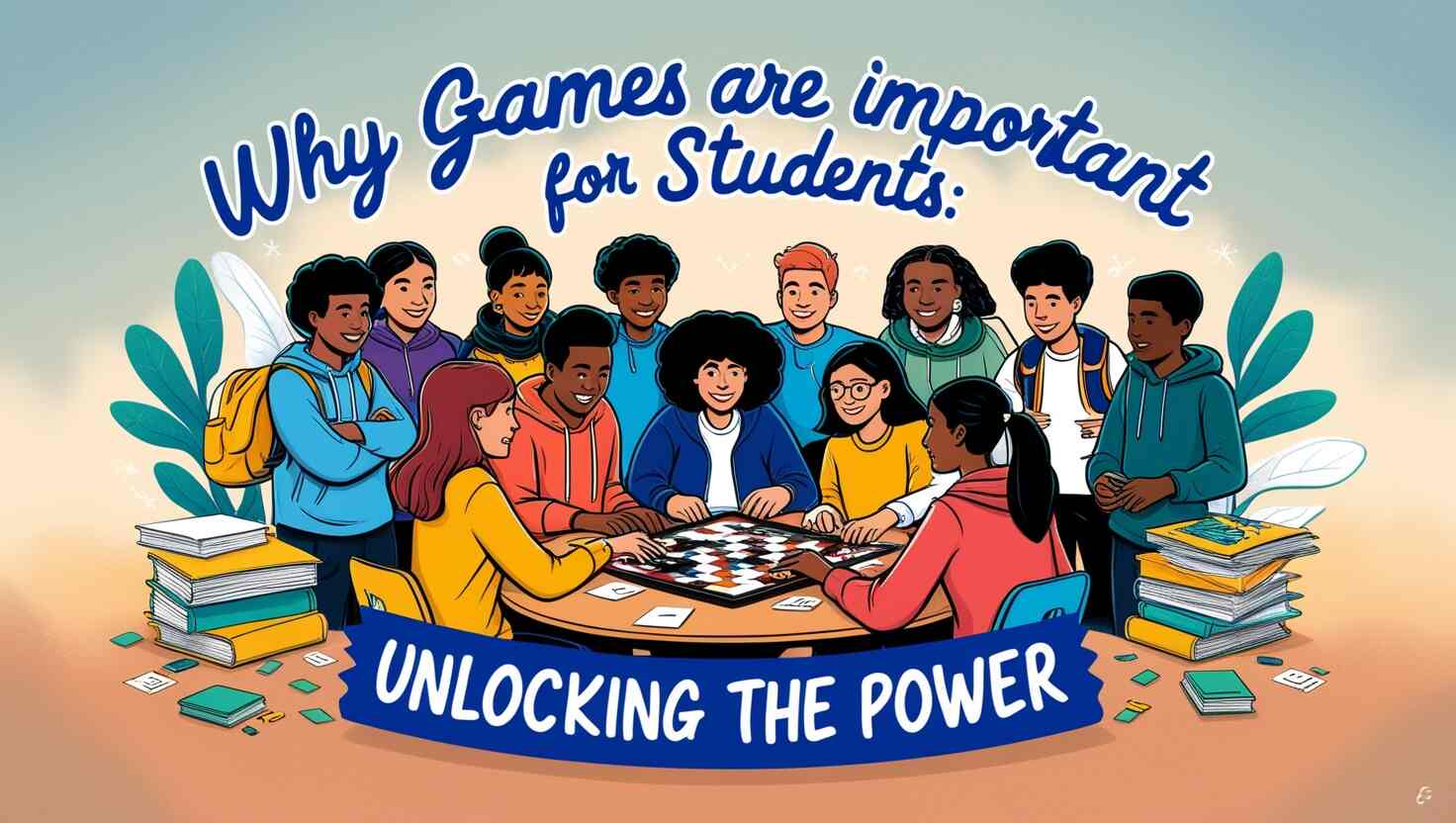Students in today’s fast-paced educational environment are often overburdened with their studies, assignments, and exams. Education undoubtedly molds the young minds, but inculcating games in a student’s life is equally important. Games, be it physical, mental, or digital, enhance the students’ overall development, their health, cognitive skills, and social skills. This article takes an in-depth look into the importance of games among students. This goes along with the numerous positives of the importance of games for students: what they can do to enhance the learning experience.
1. Physical Health Benefits
Playing games like outdoor games boosts the user’s physical health. Regular physical activities:
Improve fitness: Exercises like soccer, basketball, and running improve cardiovascular health, build muscle strength, and increase endurance.
It enhances immunity: Sports help keep one active, which strengthens the immune system and minimizes the chances of falling ill.
Enhances coordination and reflexes: Games that require running, catching, or throwing enhance motor skills and hand-eye coordination.
For students, keeping their bodies fit is essential for better concentration on academics and the avoidance of fatigue that comes with a sedentary lifestyle.
2. Mental and cognitive development

Sports involve a lot more than physical activity. They also equip the mind and develop cognitive abilities. They encourage critical thinking, problem-solving, and strategic planning. Here’s how:
Improves memory: Games like chess or memory-based digital apps challenge students to recall information, improve their memory, and retain it.
Boosts creativity: Creative games like puzzles or role-playing scenarios give scope for imagination and innovative thinking.
Improves concentration and attention: Fast-paced games require quick decision-making, which helps students develop better concentration and attention to detail.
When students engage in games that challenge their intellect, they develop skills that can transfer to their academic pursuits, such as logical reasoning and analytical thinking.
3. Emotional well-being
Academic life pressures make students feel stressed and anxious. Games are natural stress relievers because they help emotions to fade away. Advantages include the following:
It reduces stress: Physical activity releases endorphins that help the body overcome its natural stressors.
It builds resilience: Competitive games teach students how to handle both success and failure with grace, which builds emotional strength.
Encourages happiness: Playing with friends or even a solo game can brighten up one’s mood and give a feeling of accomplishment.
4. Social skills and teamwork
Games are often cooperative and communicative, which are essential life skills. Team-based activities such as soccer, volleyball, or even multiplayer video games teach students how to work effectively with others. Benefits include:
Promotes cooperation: Team games require coordination, strategy, and teamwork, which teaches students the importance of teamwork.
Improves communication: Students learn to express their ideas and listen to others, enhancing their interpersonal skills.
Builds friendships: Shared interests in games can create strong bonds between peers, fostering a sense of community.
5. Academic Benefits
Contrary to the misconception that games distract from studying, when properly balanced, they can actually enhance academic performance. Here’s how:
Improves problem-solving skills: Strategy-based games encourage critical thinking, which can be applied to academic subjects like math or science.
Encourages discipline: Regular participation in games teaches students to manage their time effectively, balancing academics and fun.
Increased motivation: A well-balanced level of games in the learning environment makes learning exciting and motivating towards the accomplishment of goals.
6. Leadership skill development
In most games, one has to take initiative and make decisions; these are major leadership skills. Students who learn through games have:
Decision making: Fast thinking in games relates to proper decision-making in reality.
Responsibility: Managing or leading a team or game plan builds responsibility.
Confidence: Success in sports enhances the student’s self-confidence, making him or her take on leadership roles in other areas of life.
7. Digital Games and Technology
Digital games are an integral part of a student’s life, especially with the advancement of technology. However, moderation is key, and there are some educational and strategy-based games that provide the following benefits:
Technical skills: The acquaintance with gaming platforms helps the student adapt to the technological changes.
It encourages multitasking: In most digital games, the players are expected to carry out multiple tasks simultaneously, which increases their ability to multitask.
Gamified learning: Most learning sites integrate gamification in the process of learning. This is meant to make learning more interactive and enjoyable.
8. Cultural and Moral Understanding
Games also become a platform for cultural exchange and moral education. For instance:
Promotes diversity: Online global games bring students from diverse backgrounds together while enhancing cultural understanding.
Teaches play: Fair play and respect for opponents instill moral values.
Reflects real-life scenarios: Role-playing games simulate real-world challenges, helping students understand social norms and responsibilities.
Balance play and study
While play is important, it is crucial to strike a balance between academics and play. Here are some tips:
Set a schedule: Set aside specific times for play and study to avoid overlap.
Choose productive games: Choose games that align with academic goals or improve skills.
Limit screen time: For digital games, ensure moderate usage to prevent over-reliance.
Conclusion
Games are an integral part of a student’s life, contributing to his or her overall growth and development. From improving physical and mental health to fostering social skills and leadership abilities, games offer numerous benefits that go beyond mere entertainment. By integrating games into the education system and encouraging a balanced approach, we can ensure that students not only excel academically but also develop as good individuals.
In a world where academic achievement is the order of the day, it is high time to realize that games play an important role in nurturing the minds and bodies of students. For, after all, a healthy mind resides in a healthy body, and games provide the perfect medium to achieve this harmony.
Also read How Games Help Students Learn: The Role of Play in Education
